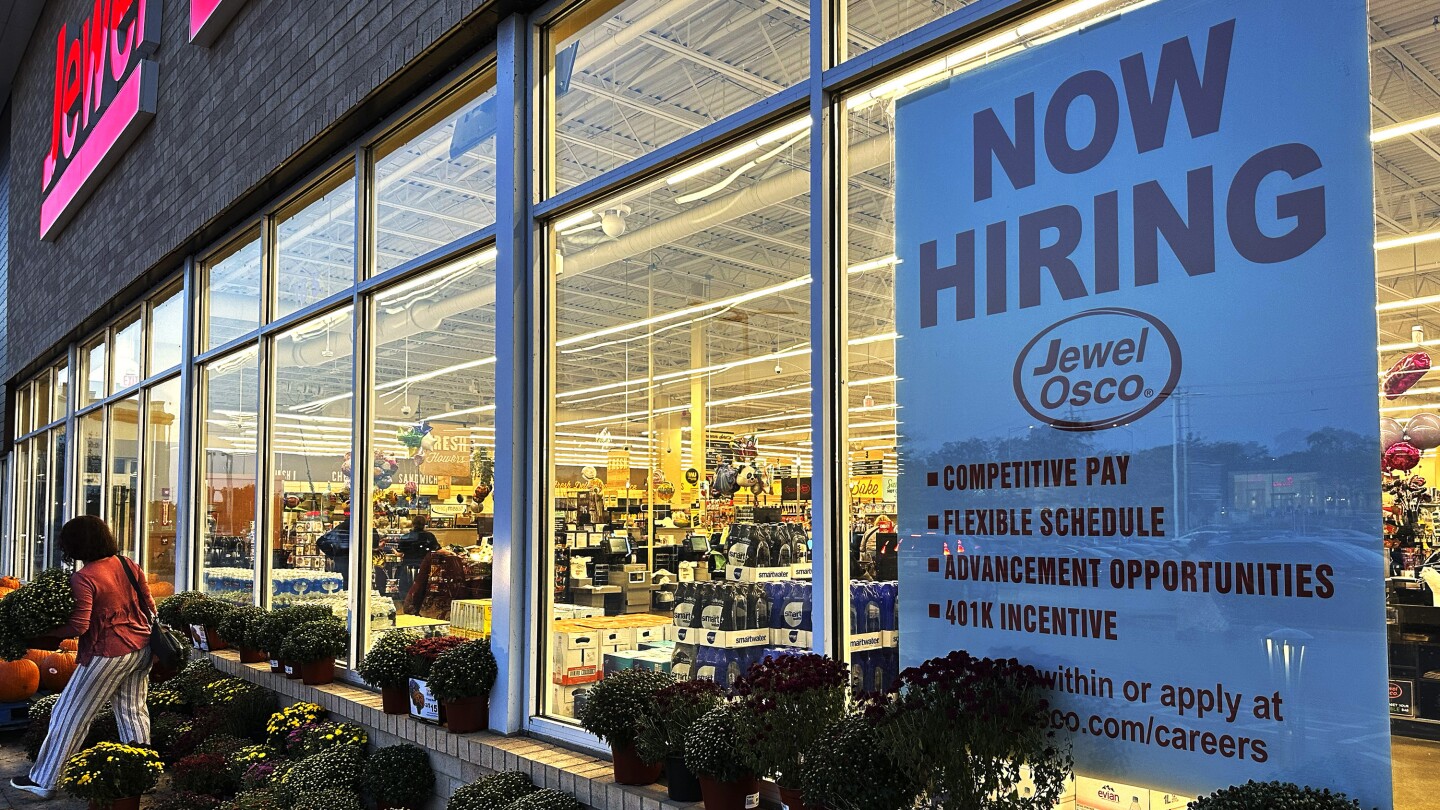NEW YORK (AP) — Most business economists think the U.S. economy could avoid a recession next year, even if the job market ends up weakening under the weight of high interest rates, according to a survey released Monday.
Only 24% of economists surveyed by the National Association for Business Economics said they see a recession in 2024 as more likely than not. The 38 surveyed economists come from such organizations as Morgan Stanley, the University of Arkansas and Nationwide.
Such predictions imply the belief that the Federal Reserve can pull off the delicate balancing act of slowing the economy just enough through high interest rates to get inflation under control, without snuffing out its growth completely.
…
High rates work to slow inflation by making borrowing more expensive and hurting prices for stocks and other investments. The combination typically slows spending and starves inflation of its fuel. So far, the job market has remained remarkably solid despite high interest rates, and the unemployment rate sat at a low 3.9% in October.



And I’m telling you that your approach to doing this is, rhetorically, disastrous. You come across as both smug and dismissive of people’s suffering and anxiety – and your response to reading me say that musn’t be, “Well, this person is irrational and not willing to engage with data.”
Yes, people are dissatisfied with basically… all of how modern nation states are organized and run, from government to business to day-to-day social interactions.
But the whole premise of democracy is that the people, in aggregate, know best how to direct our lives. And what poll after poll says is, people are frustrated in particular with the perceived decline in their purchasing power. That perceived decline comes directly from making more money and yet only being able to afford the life they had before the round of inflation started. The very “wage growth” that you are claiming has mooted the issue of inflation.
So, even if it’s true that, on average, people’s spending power is the same now as it was before the pandemic – which may not be true, depending on whether the already wealthy, to whom most of the gains have gone since the pandemic, are skewing that average – that is not a victory. It is, at best, a depressing reminder that people live in a system that cares more about aggregate statistics on a balance sheet than it does about their actual lives.
Where did I call it a victory? Maybe a very slight relative victory compared to the disastrous real wage loss that occured during inflation flights in the 1970s and 1980s and never really recovered until the 2010’s. I’m calling it a distraction from actual problems at this point.
Also it’s average wage growth across the whole country, people make more money as they advance in their careers. So average real wages across the entire economy remaining constant doesn’t literally mean individuals have not advanced in their own personal financial situation. It’s disingenuous to represent it that way.
This is, like… you don’t hear yourself, do you?
Me: “People are miserable about the specific thing you’re pointing at to try dismiss discussion on this topic.”
You: “That’s because discussions on this topic are a distraction from problems that I deem more important.”
Me: “Okay, but you do realize that people don’t agree with your perception of the situation, or your prioritization of the problems, and that by insisting on this point in a pedantic way you come across as smug and dismissive.”
You: “Yes, but what about my perception of what’s an actual problem?”
You can shout from the rooftops that we have bigger fish to fry – and I might even agree with you – but people can’t even think about bigger problems as long as they’re struggling to pay the bills! People report having trouble paying the bills! Large swathes of the American public are drawing on their retirement savings to get by! Whether you think the inflation situation and its aftermath is an “actual problem”, telling people they’re wrong and throwing numbers at them is just not going to be an effective strategy here.
You aren’t hearing me. And you’re (literally) putting words in my mouth. Last comment from me.
If everyone is screaming about going on inflation fighting crusades and look how bad inflation is, meanwhile inflation is flat now and purchasing power is the same as it has been. Well you’re not gonna improve anything for anyone by focusing on inflation any further at this point (unless you’re proposing increasing interest rates to the point that you crash the economy enough to cause deflation after no one can afford anything so prices have to drop, or switching to a centrally planned economy, I wouldn’t recommend either). So let’s talk about those many economic issues that are out of control that will improve the situation and ability of people to get things they want and need. Like improving income inequality. There’s a way to increase your purchasing power. Or making sure the rich pay their fair share so social security is solvent so people in retirement and not working get increases compensating for inflation. Feel free to go on harping about inflation that’s not even happening any more though I guess.